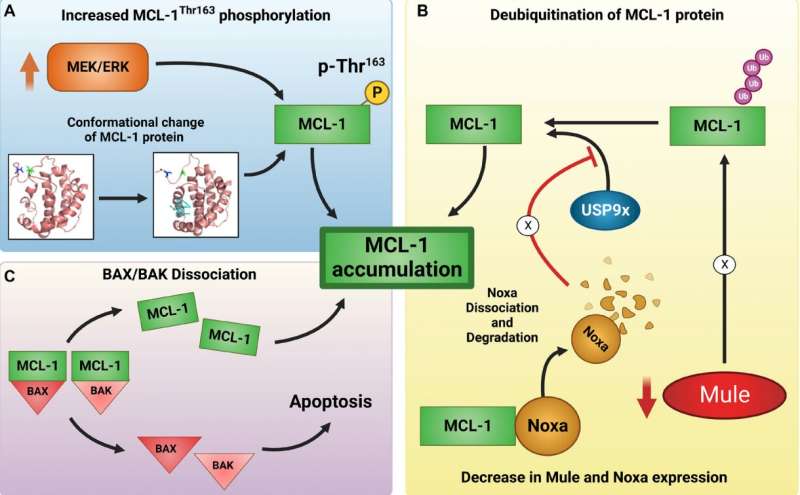
A new editorial paper titled “Decoding the mechanism behind MCL-1 inhibitors: A pathway to understanding MCL-1 protein stability” has been published in Oncotarget.
The successful development of the BCL-2 inhibitor venetoclax, currently approved for chronic lymphocytic leukemia (CLL) and acute myeloid leukemia (AML), encouraged the development of inhibitors that target other antiapoptotic proteins, particularly Myeloid Leukemia 1 (MCL-1). MCL-1 is among the top genes amplified in several cancers and is implicated in cancer progression, drug resistance and poor prognosis. It protects cancer cells from apoptosis and decreases their sensitivity to targeted agents or chemotherapeutics.
In this new editorial, researchers Shady I. Tantawy, Natalia Timofeeva, Ana Hernandez, Aloke Sarkar and Varsha Gandhi from The University of Texas MD Anderson Cancer Center discussed their recent investigation into the mechanism of MCL-1 inhibitor (MCL-1i)-induced Mcl-1 protein stability. The team explored underlying molecular mechanisms that contribute to MCL-1i-induced MCL-1 protein accumulation and its implications. Their study revealed a complex and multifaceted nature of MCL-1 protein accumulation in B-cell malignancies upon treatment with MCL-1i (AMG-176 and AZD5991).
“Collectively, these findings may have important implications for the development of next-generation MCL-1i with improved efficacy and safety profiles,” the researchers note.
More information:
Shady I. Tantawy et al, Decoding the mechanism behind MCL-1 inhibitors: A pathway to understanding MCL-1 protein stability, Oncotarget (2023). DOI: 10.18632/oncotarget.28440
Journal information:
Oncotarget
Source: Read Full Article